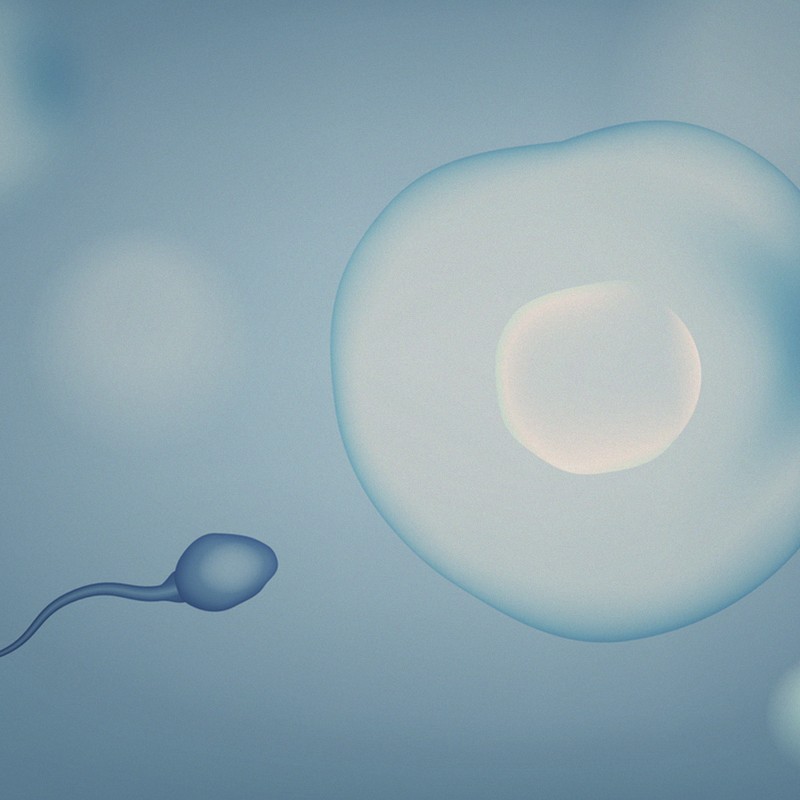Sperm Health 101
Sperm Quality Is On The Decline
Male fertility has become big news in recent years, and with good reason, says nutritional therapist Alison Hall. “In the last 40 years, male fertility has plummeted by an extraordinary 50% and it’s now widely acknowledged that the male factor accounts for around 40-50% of all cases of subfertility.”
To put this into perspective, Alison tells us that in 1987, the World Health Organization (WHO) said the lower reference limit for progressive motility (how fast sperm swim) was at least 50%. This was later dropped to 28% in 2010. “Similarly, the number of well-formed sperm in a given sample (i.e. their shape or morphology) used to be expected to be around 50% in 1987 and yet now 4% is deemed acceptable, suggesting a staggering 96% of sperm produced would be misshapen – perhaps too small, or with small heads, or two tails.”
And it’s not just the physical qualities of sperm that matter – what’s also important is the DNA housed within a sperm’s head, which becomes fused with the egg’s DNA on fertilisation. “This was recently acknowledged by the WHO as a valuable part of male fertility,” Alison adds. “A study suggested up to 80% of cases of unexplained infertility were attributable to a high level of fragmented sperm DNA.”
What You Do Now Can Make A Difference
But all is not lost, according to the experts. Unlike women, who are born with all the eggs they’ll ever have, men are constantly producing new sperm, which means lifestyle factors play a significant role. “Spermatogenesis – or the production of sperm – takes place constantly, and a new batch of sperm is produced roughly every 74 days,” Alison tells us. “So, to bust a sperm myth, just because a man has fathered a child in the past, there’s no guarantee of the quality of his sperm today. It also means there’s a huge window of opportunity to make a different to the quality of sperm. What you do now will affect the health of your sperm in three months’ time.”
Heat, Smoking & Toxins Play A Part
Excessive heat near the testicles can hinder sperm production. As Alison explains, one study of 656 men saw 25% higher sperm concentrations when they swapped briefs for boxers. “There’s a reason testicles are outside the body. For the same reason, avoid hot baths, saunas and heated car seats if you’re trying to conceive. Consider cutting back on cycling, too, which scrunches up the testicles. Plus, if you’re cycling on a busy, urban road, you’ll be breathing in pollution, which can lead to chromosomal abnormalities. Where possible, it’s worth reducing exposure to environmental toxins: avoid heating food in plastic containers and choose glass or stainless-steel water and food storage instead of Tupperware.”
Dr Malini Uppal, medical director at Gennet City Fertility, says quitting smoking is also imperative. “Men who smoke have been shown to have abnormalities in sperm production, while drinking too many units of alcohol can also take its toll by causing chromosomal damage and decreased motility.” Keep an eye on your weight, too, says Malini, as studies show overweight men have a lower sperm count as testosterone can more easily be converted into oestrogen, the dominant female sex hormone.
Age Is A Factor
The connection between female fertility and age is well known, but the relationship between age and male fertility is less discussed. As fertility expert Zita West explains, “Although a fertile man may be producing sperm throughout his life, the quality of that sperm has been shown to be compromised the older he becomes. Researchers who studied over 12,000 couples undergoing fertility treatment found that if the man was over 35 the chances of conception were more challenging.” Genetic abnormalities in sperm also become more prevalent with age, and sperm numbers and function generally decline.
What You Eat Matters
Because what you do now will make a difference in three months’ time, the experts a recommend cleaning up your diet. And when it comes to a super sperm diet, the Mediterranean approach reigns supreme, says Alison. “In one study, men who didn’t incorporate a Mediterranean diet were 2.6 times more likely to have abnormal sperm concentration, total sperm count and motility compared with those eating more in line with a Mediterranean diet.” Rich in plants, wholegrains, lean protein and healthy fats, a Mediterranean diet is naturally full of antioxidants, which play a crucial role in sperm health. “The humble tomato, which is rich in an antioxidant called lycopene, is a great example,” says Alison. “One study saw two tablespoons of concentrated tomato purée a day resulted in improved sperm motility and morphology. Watermelon is also a great source of lycopene.” Swapping crisps for nuts is also a sensible idea, with two handful of mixed nuts daily shown to improve male fertility, while omega-3 oils have also been linked to improved sperm count, concentration, motility and morphology. “Aim for seven to ten portions of fruit and veg each day and make an effort to include healthy fats daily – olive oil, avocados and oily fish are all brilliant,” says Alison.
A Well-Rounded Supplement Can Help
The health of the sperm begins with the health of the semen, which contains 22 nutrients and is rich in minerals – notably calcium, magnesium, phosphorus and zinc, as well as vitamins B12 and C – says Zita. “As a baseline, both partners should consider supplementing with a high-quality multivitamin and mineral formula – as studies have shown this can increase your chances of conceiving. This formula should contain at least 100% of the RDV (recommended daily value) of the main vitamins and minerals,” says Zita. When it comes to specific ingredients to look for, Bertie Stringer, head of nutrition at DNA, says zinc plays a key role, as does selenium and vitamins C and E. “Zinc plays a role in sperm formation, testosterone metabolism and cell motility, and supplementation has been shown to increase testosterone levels and support sperm health. Selenium, meanwhile, functions as an antioxidant and has been shown in studies to improve sperm motility, while vitamins C and E protect your cells from getting damaged from free radicals and oxidative stress, which is a by-product of modern lifestyles.” Don’t expect miracles overnight, however. Both Zita and Bertie say you should take a supplement for at least 90 days to put the body back into balance.
Getting Tested Can Provide A Clearer Picture
If you’ve been trying to conceive for a year without success, a semen analysis can provide more clarity, and it’s worth going private if you can, says Zita. “A test can be done through your GP, but the sample will likely be sent to a pathology lab at a nearby hospital, meaning the results will give you a crude sperm count and not much more. If you can, go to a fertility clinic where the sample will be sent to a lab specialising in semen analysis. You’ll have to pay, but the results will be detailed and highly informative.” Bertie, meanwhile, rates Exseed, which offers intelligent at-home testing. “Exseed tests can be done in the privacy of your own home, and results are available in just 15 minutes. The platform will also provide steps to improve your sperm count if your result is low,” she says.
Keep Things Ticking Over
“One of the most common questions we’re asked is how often to have sex when you’re trying for a baby and if it’s better to save the sperm up,” Zita finishes. “Firstly, you should be having sex as much as possible, at least three times a week, and the idea of saving sperm is a myth as it will die after a few days. Research shows that the more fresh sperm there is, the better the quality.” Need a more specific number? The ESHRE (the European Society of Human Reproduction and Embryology) recommends ejaculating every three to four days for optimal sperm quality, says Alison. “Ultimately, we need to bear in mind that as a population, many of us are choosing to start a family later in life, and it’s not just women who have a biological clock ticking,” she tells us. “Fortunately, there is everything to play for as semen quality can be significantly influenced by nutrition and lifestyle interventions. This means that a healthy 40-year-old man could ultimately have a far better fertility potential than someone five, ten or even 15 years younger.”
For more, visit AlisonHallNutrition.co.uk, City-Fertility.com, DynamicNutritionAcademy.com & ZitaWestClinic.com
DISCLAIMER: Features published by SheerLuxe are not intended to treat, diagnose, cure or prevent any disease. Always seek the advice of your GP or another qualified healthcare provider for any questions you have regarding a medical condition, and before undertaking any diet, exercise or other health-related programme.
All products on this page have been selected by our editorial team, however we may make commission on some products.
DISCLAIMER: We endeavour to always credit the correct original source of every image we use. If you think a credit may be incorrect, please contact us at [email protected].


